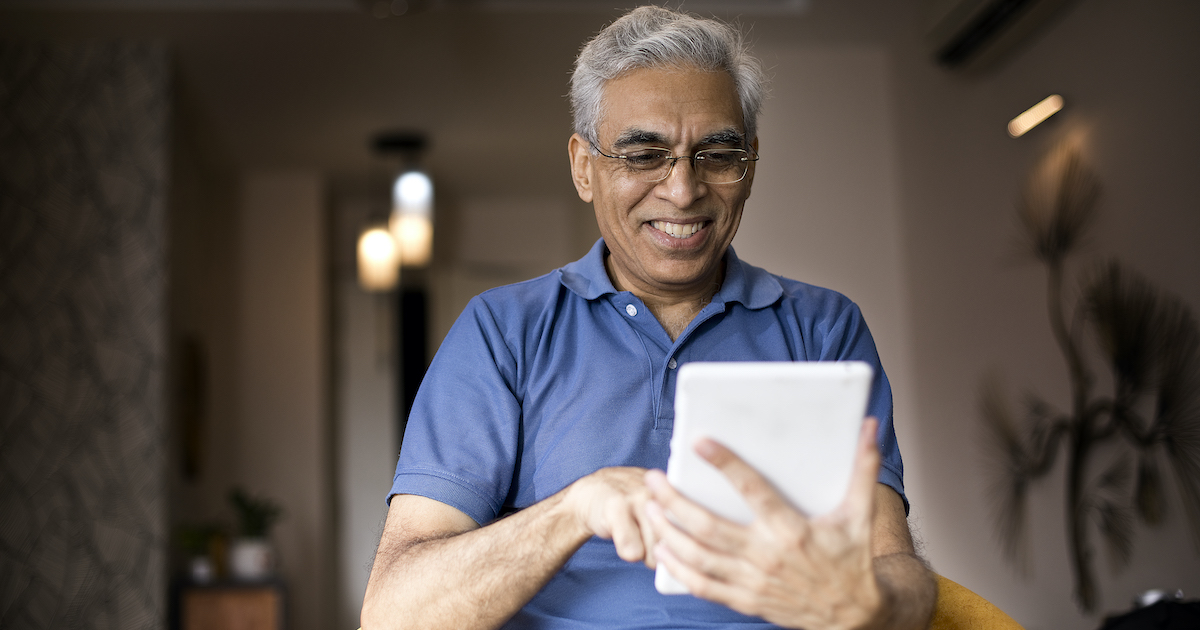Newest examine from South Korea has discovered variations in goal and satisfaction with utilizing healthcare functions and wearable well being gadgets amongst older Koreans.
Researchers from Seoul Nationwide College, Yonsei College, aged care firm Silvia Well being, and DTx maker WELT Corp. surveyed Koreans aged 65 and older to analyze how they’re utilizing digital well being applied sciences and the way frailty impacts their utilization. They declare that they’re the primary to check the utilisation of digital well being expertise between pre-frail or frail seniors adults and wholesome seniors.
The findings of their examine, which was supported by a grant from the Korea Illness Management and Prevention Company, had been revealed within the Journal of Korean Medical Science.
FINDINGS
The examine surveyed 505 respondents, 30% of whom are thought of frail in accordance with Korean requirements, whereas the remainder are thought of wholesome. All respondents polled are recognized to be smartphone customers, although a majority of them (63%) can’t set up or uninstall cell apps on their very own.
It was discovered {that a} quarter of the respondents are utilizing healthcare apps, principally wholesome seniors. For frail seniors, they’re extra probably to make use of such apps to get healthcare data and search medical steerage than wholesome seniors. The place these apps are discovered extra helpful is for supporting self-care and managing private healthcare knowledge, the researchers famous.
In the meantime, solely 36 out of over 500 respondents use wearable gadgets. These embrace sensible watches, ear gadgets, and patch-type wearable gadgets, that are principally used to measure bodily exercise. It was famous that wholesome customers had been extra prone to discover comfort in utilizing wearable gadgets than their frail counterparts. The latter are extra probably to make use of wearable gadgets to determine on making emergency or early hospital visits.
WHY IT MATTERS
South Korea’s inhabitants is quick ageing, with senior residents making up virtually 20% or 9.73 million of its whole inhabitants in 2023. Statistics Korea expects that their quantity will attain 10 million this yr. Given this persevering with pattern, the company beforehand forecasted that by 2050, individuals aged 65 and above will account for 40% of the Korean inhabitants.
As the newest survey discovered decrease utilization of healthcare apps and gadgets amongst frail seniors and a few variations in digital well being utilization between frail and wholesome seniors, the researchers advised creating applied sciences that take into account their distinctive wants.
“[A]lthough digital well being expertise is an rising discipline of well being administration, it requires extra concerns when utilized to older adults in comparison with youthful adults. To extend the utilization [of] digital well being expertise amongst older adults, it is very important determine their particular functions and expectations for such expertise,” they defined.
“Due to this fact, when creating digital gadgets for pre-frail and frail older adults, it’s essential to include customised companies that meet their distinctive wants, notably these companies that they often use,” the researchers stated in conclusion.
THE LARGER TREND
Having one of many largest populations of smartphone customers on the planet, South Korea can assist increase the well being outcomes and standing of its individuals by encouraging the uptake of cell well being applied sciences. A 2022 examine advisable this after discovering the expertise’s potential to mood the consequences of social determinants of well being, together with gender, family earnings, and social capital, on Korean’s well being, notably the underserved. It was pressured, nonetheless, that cell well being methods nonetheless can’t substitute the care offered via conventional settings.
